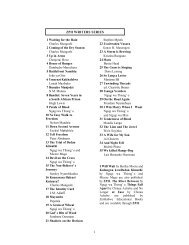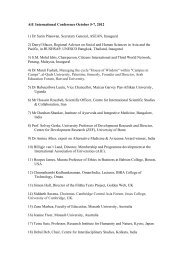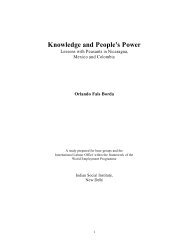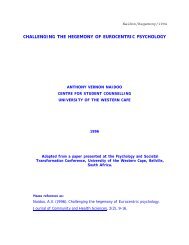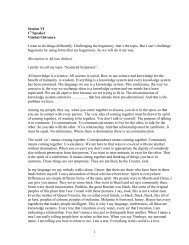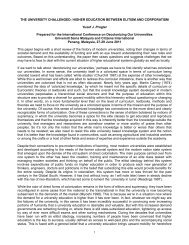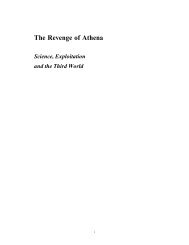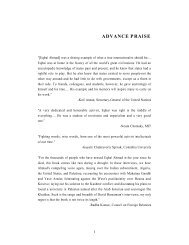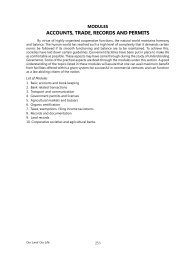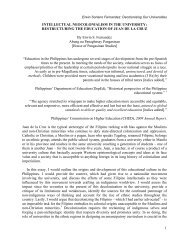... for they have their own thoughts - Multiworld India
... for they have their own thoughts - Multiworld India
... for they have their own thoughts - Multiworld India
Create successful ePaper yourself
Turn your PDF publications into a flip-book with our unique Google optimized e-Paper software.
2005 Goa, <strong>India</strong>49RAGHU BABUI joined the Sajana school. I was there <strong>for</strong> the periodof one year. Here I started with agriculture. We had12 acres of land. The children used to work two orthree hours a day. This curriculum linked the childrenwith nature. By observing and working with thenature the children learnt a lot of things. The childrenhad to maintain an in<strong>for</strong>mation sheet, from thestarting of the season till the end. The student had tonote d<strong>own</strong> the number of hours <strong>they</strong> put in to waterthe crops, how much yield was obtained etc.On one acre of land we had gr<strong>own</strong> creepers, ontwo acres ladyfingers, and on the remaining landwe planted maize. The children got the opportunityto learn about the plants while watering, observing,cutting etc. The children went to the fields to collectdata, interview the farmer or the labourer there.There were no prescribed textbooks, no fixedcurriculum nor syllabus. The teachers used to teachaccording to the interest of the children and designedworksheets accordingly. The work of eachstudent bound together became his <strong>own</strong> uniquenote cum text book.SUMAN, MANJU, RAMA AND CHAMPA: USNPSS,ALMORAAll our learning has come to us from the mountains.Uttarkhand is the hill state in northern <strong>India</strong> sharing acommon border with West Nepal. The mountains<strong>have</strong> sustained life <strong>for</strong> aeons. People <strong>have</strong> drawn<strong>their</strong> basic necessities of fodder, water, fuel andfood from these mountains. In the past three decadesthe ecology has changed, the <strong>for</strong>ests <strong>have</strong>gone. There is male migration and alcoholism.Women are deserted and land degraded.Land degradation has made life difficult <strong>for</strong> thewomen because the basic necessities <strong>have</strong> becomethat much more difficult to fetch and gather.It has become a cash-based economy.Terraced farming is done by the women andsince it is rain-dependent, limited crops are harvested.This has led to the youth seeking opportunitiesoutside the land.A few decades ago, people took cognizance ofthe connectivity between <strong>their</strong> sustenance and the<strong>for</strong>est resulting in the well kn<strong>own</strong> Chipko movement.Since the village ecosystem is the sustainer,Uttarkhand Seva Nidhi decided to introduce aprogramme that would incorporate this understandingin children.We <strong>have</strong> pre-primary education throughbalwadis <strong>for</strong> 2 to 6 year olds, women’s communitygroups <strong>for</strong> community unity, action and decisionmakingand the environmental education programmeis introduced in class VI, VII and VIII throughthe ‘Our land, our life’ series of books.“The results cannot beseen but felt, once thebarriers <strong>have</strong> brokend<strong>own</strong>, one notices inthe participants asubtle <strong>for</strong>m ofawareness thatinduces selfconfidence, pride andcontentedness”.– Dileep Kamat




